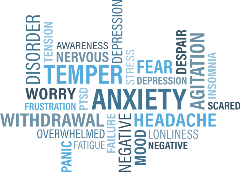Behavioral Health

Behavioral health is a major public health issue in the District of Columbia. Sadly, many of the legislative and regulatory initiatives around behavioral health are tied to other public health concerns, such as opioid addiction, maternal mortality, and health equity.
In partnership with the Washington Psychiatric Society, AMA, and American Psychiatric Association (APA), MSDC works to ensure that patients receive appropriate support for behavioral health issues, that the practice of psychiatry is supported in the District, and that psychiatrists are available to patients in the District.
MSDC was a proud supporter of the Behavioral Health Parity Act of 2017, which enshrined into law that all health plans offered by an insurance carrier meet federal requirements of the Wellstone/Domenici Mental Health Parity and Addiction Equity Act of 2008.
MSDC Statements and Testimony of Behavioral Health Issues
25th Council period information coming soon
DC Issues RFI on Behavioral Health Within Medicaid Reform

From the press release from the Department of Health Care Finance and Department of Behavioral Health. Please see entire notice here.
The Department of Health Care Finance (DHCF) and the Department of Behavioral Health (DBH) are jointly publishing a Request for Information (RFI) to solicit information from interested parties (e.g., consumer organizations, the provider community, etc.) regarding the pathway to integrate behavioral services more fully into the benefits offered by District’s Medicaid managed care program. Overall, DHCF and DBH envision a three-phase approach to Medicaid behavioral health transformation that will result in a whole-person, population-based, integrated Medicaid behavioral health system that is comprehensive, coordinated, high quality, culturally competent, and equitable.
Phase I of the District’s Medicaid behavioral health transformation efforts were initiated in 2019 with DHCF and DBH’s collaboration and joint development of the 1115 Behavioral Health Transformation Waiver. Additionally, DHCF is continuing its progress of developing a more coordinated Medicaid system of care by transitioning approximately 19,000 individuals from fee-for-service (FFS) to the managed care program in October 2020, where primary and acute care health services will be administered for these individuals via their assigned/selected managed care organization (MCO). During this first phase, MCOs will be responsible for ensuring coordination among individuals’ primary, acute, and behavioral health care needs.
This model will allow the District Medicaid program to shift away from a fragmented approach of providing care to individuals most in need of behavioral health services, to ensuring that the total health outcomes of an individual are coordinated.
In Phase II, DHCF plans to include behavioral health services as covered benefits in the District’s managed care contracts as of October 1, 2021 with the purpose of improving coordination and providing whole-person care. Phase III will focus on additional efforts to integrate physical and behavioral health for Medicaid beneficiaries in the District of Columbia.
This RFI is exploratory in nature and is designed to solicit feedback from all community members, stakeholders, and partners on Phase II and Phase III of the Medicaid behavioral health transformation activities. No award will be made as a result of this RFI. DHCF and DBH may share responses publicly in aggregate; however, individual responses and the names of the respondents will not be identified.
Submission Deadline: Monday, September 21, 2020 at 5:00 PM (ET)
Submission Format: Responses to this RFI should be submitted in a Microsoft Word attachment in 12 point font and must be limited to a maximum of 20 double-spaced, 8 ½” x 11” pages in total, excluding appendices. All responses must include organization name and contact information.
Respondents: DHCF and DBH are seeking feedback from consumers, consumer/client advocates, health plans, provider networks or associations, independent providers, hospital organizations, and other stakeholders interested in strategies that will result in a whole-person, population-based, integrated Medicaid behavioral health system that is comprehensive, coordinated, high quality, culturally competent, and equitable for Medicaid beneficiaries served by MCOs in the District.
Questions: Questions concerning this RFI must be received via email at healthinnovation@dc.gov no later than Tuesday, September 1, 2020 at 5:00 PM (ET). Please reference the transmittal number on all correspondence. Any questions received in response to the Behavioral Health Transformation RFI will be posted on DHCF’s website as an addendum to this solicitation.
Sample of Legislation MSDC is Tracking in Behavioral Health
(see the whole list of bills here)
What does it do? The bill requires licensed health providers to complete 2 hours of CME on suicide prevention, assessment, and screening.
MSDC position: MSDC opposes the bill as written as the language does not encourage physician wellbeing or sufficient awareness of suicide prevention.
Current status: The bill had a hearing with the Committee on Health on June 10.

Leave a comment